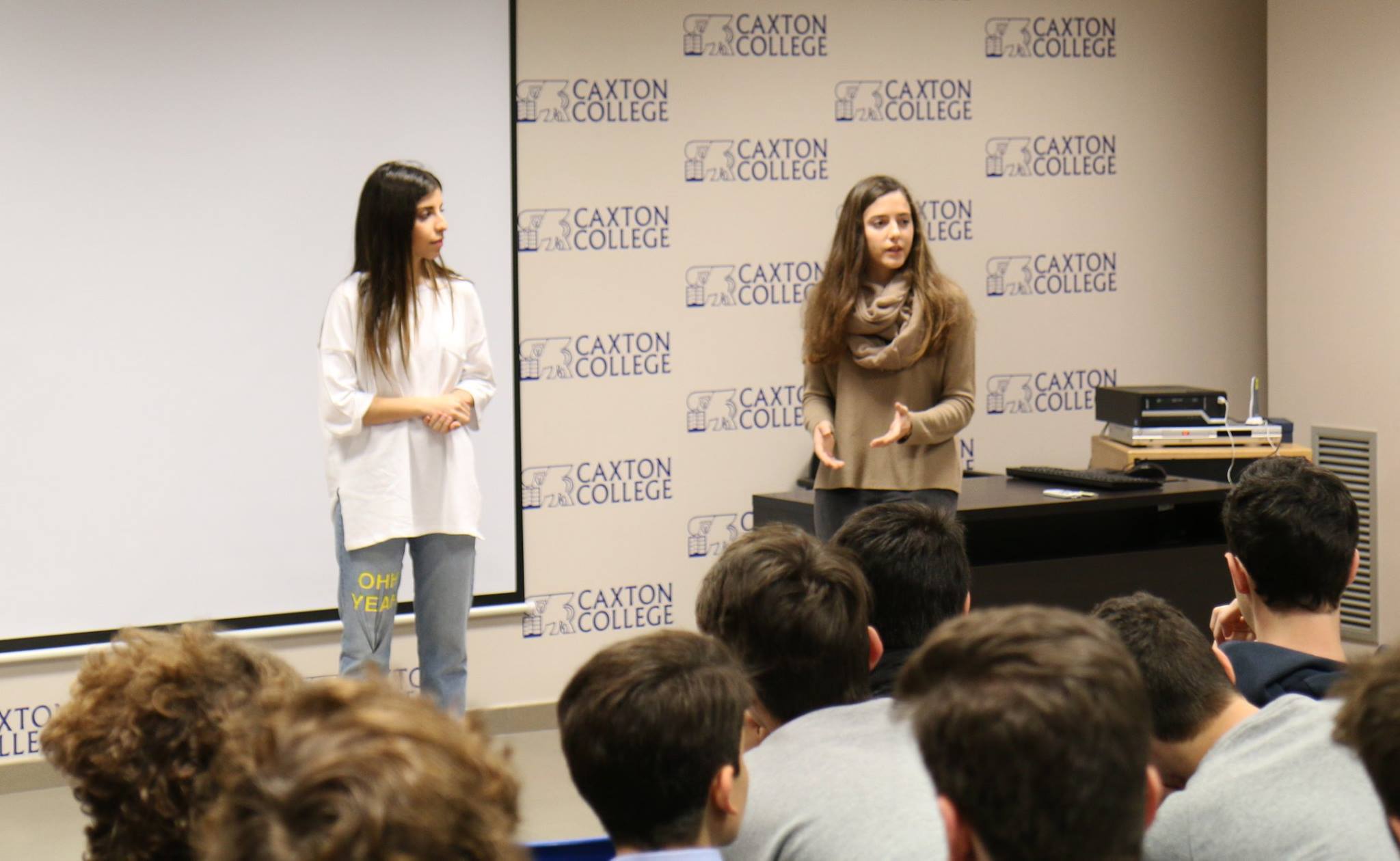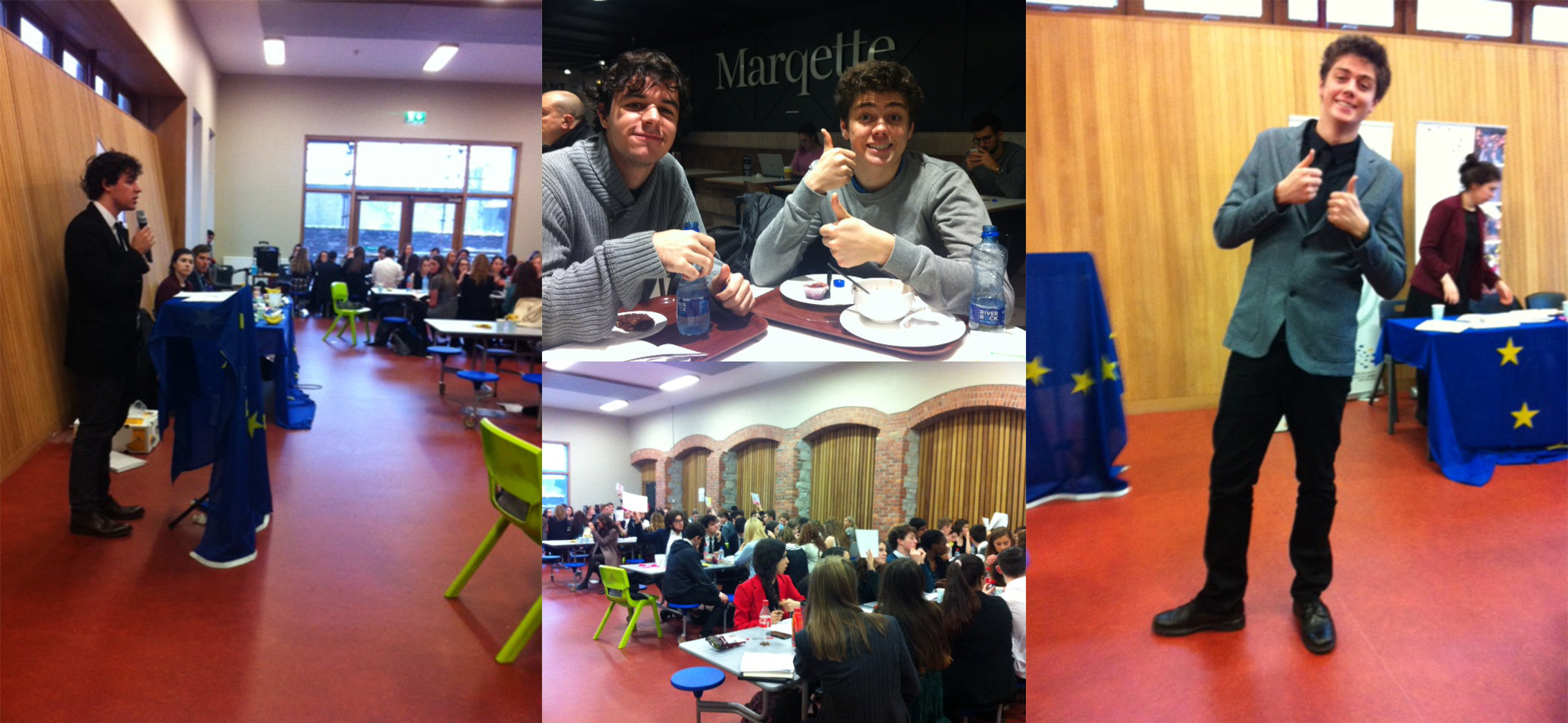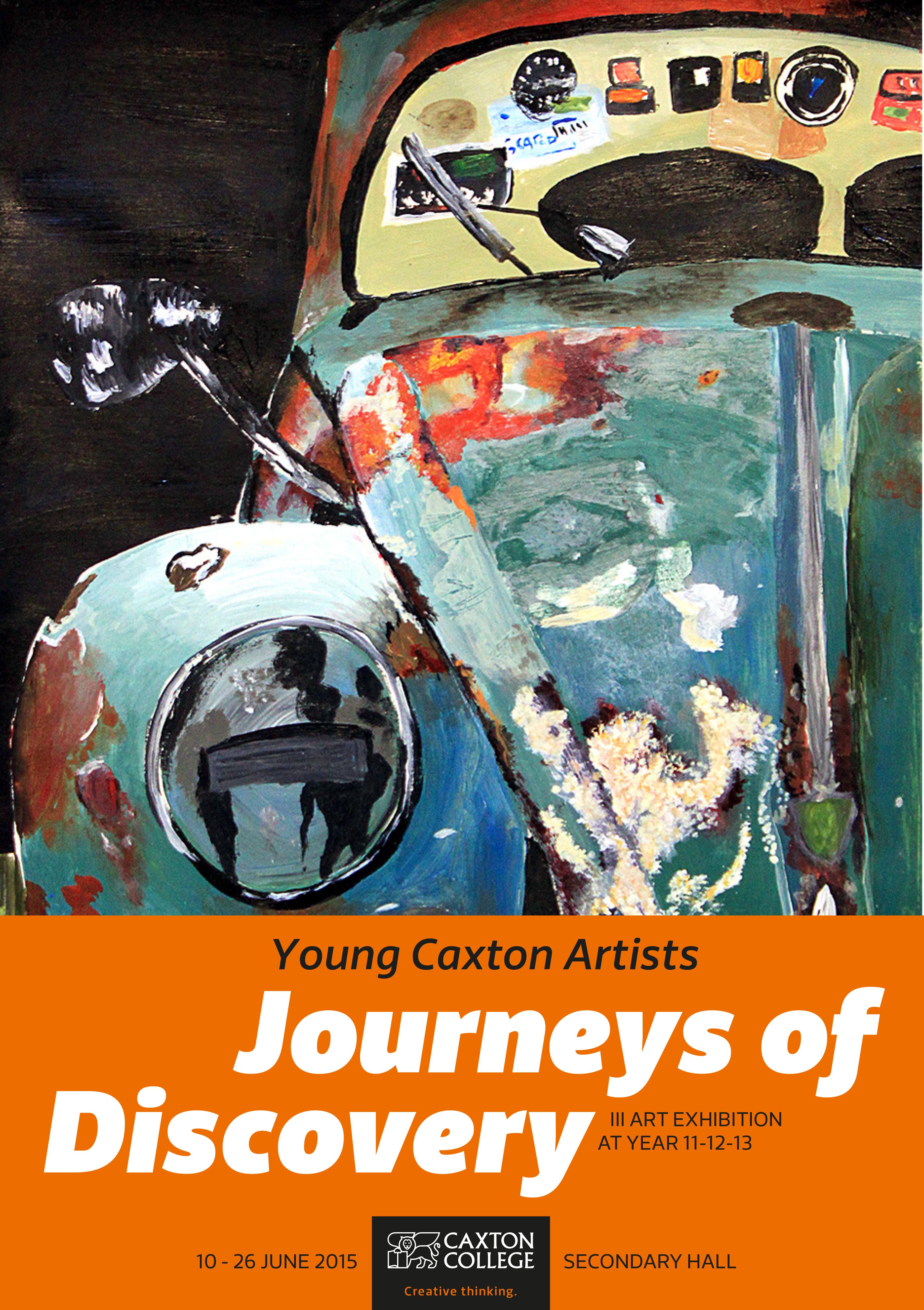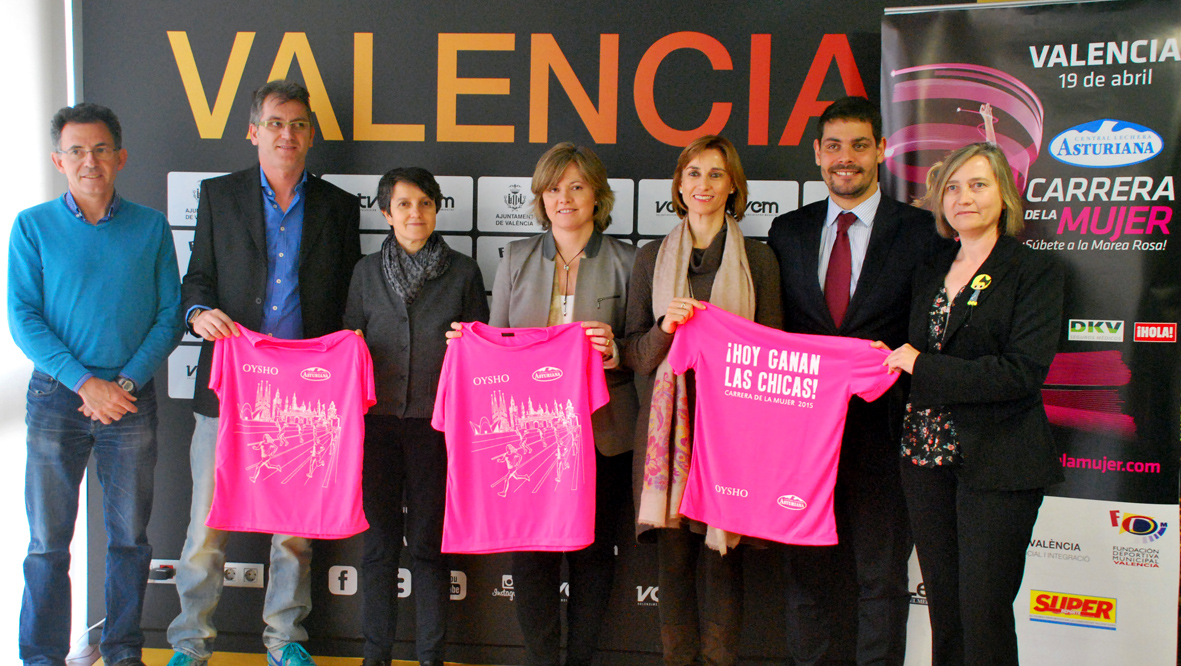
Desde la Universidad de Cambridge y la Escuela de Moda, Arte y Diseño Marangoni en Londres, Marta Uncio y Zoe Zanón visitaron a nuestros alumnos de Year 12 para aconsejarles sobre su futuro académico.
- APROVECHAR AL MAXIMO EL COLEGIO: Es importante estudiar al máximo desde Yr. 12 porque de esta forma obtendrán la mejor nota posible. Deben intentar ser ellos los que elijan su futura carrera, y que su nota no les impida estudiar lo que quieran y dónde quieran.
- ESFUERZO CONSTANTE: Todo el esfuerzo que hagan durante Yr. 12 y 13 será recompensado cuando puedan estudiar el grado que les gusta, porque al final te sientes muy realizado y orgulloso de ti mismo.
- ELEGIR EL GRADO ADECUADO A TU VOCACIÓN: A la hora de elegir un grado universitario, deben elegir uno que realmente les interese, les motive y por el que tengan vocación. Estudiar en la universidad requiere mucho esfuerzo y horas de trabajo y si los estudios que han elegido les gustan, será mucho más motivador. Ellas incluso comentan que tienen ganas de llegar a casa y hacer los trabajos que les han mandado porque disfrutan mucho aprendiendo.
- ESTUDIAR FUERA DE TU CIUDAD: Ellas aconsejan salir a estudiar fuera de sus ciudades, no hace falta que sea en el extranjero, simplemente salir de casa a otra ciudad para vivir independiente. Aunque al principio dé un poco de miedo e inseguridad, las vivencias que van a tener lo superan con creces. Ellas están seguras que vivir fuera les ha hecho madurar y ser más responsables.
- CONVIVENCIA Y COMPETITIVIDAD: Si finalmente estudian fuera de su ciudad, no deben de tener miedo de convivir con otros compañeros, en seguida hacen una piña entre ellos, se ayudan incluso para estudiar, compartir libros y apuntes, y no hay apenas competitividad.
- APRENDER A GESTIONAR EL TIEMPO: Al vivir independiente de tus padres, tienes que aprender a organizar tu tiempo: para estudiar, hacer deberes y proyectos, conocer la ciudad, salir con amigos…al principio es normal cometer errores y salir en exceso, pero después te vas dando cuenta del tiempo que has perdido y del esfuerzo que supone recuperarlo, así que al final aprendes que hay que gestionarse mejor y vas aprendiendo con la práctica.
- AMPLIAR AMISTADES CON ALUMNOS EXTRANJEROS: Cuando estudias fuera, eres un alumno extranjero más y te unes a otros compañeros que están en tu misma situación sean del país que sean. Ellas comentan que se arrepienten de no haber conocido mejor y haber valorado más a sus compañeros extranjeros en el colegio. Animan a todos los alumnos a “salir de su zona de confort” y a ampliar su grupo de amigos de siempre con otros compañeros nuevos. Es muy enriquecedor conocer culturas y costumbres diferentes a la tuya. Hoy en día ellas comentan que ya tienen amigos de países de todo el mundo que las invitan incluso a pasar temporadas con ellas.
- RELIZAR PRÁCTICAS LABORALES: Animan a buscar ofertas de trabajo en cuanto tengan tiempo libre trabajando en lo que sea, para tener un curriculum más completo en el futuro. Ellas comentan que son las únicas que no han podido demostrar experiencia laboral y que éste, es un factor muy valorado. Hay universidades que incluso lo exigen como parte obligatoria de su currículum (en el caso de Marta le exigen 8 meses de trabajo demostrado a lo largo de la carrera). Reconocen que en España no tenemos esa cultura pero fuera nuestras fronteras se valora mucho, así que les aconsejan trabajar en cuanto tengan posibilidad.
- CREAR UN CURRICULUM DE EXPERIENCIAS QUE DEMUESTRE RESPONSABILIDAD: Les animan a hacer todo tipo de cursos y actividades que les puedan venir bien para el futuro: colaborar con organizaciones de ayuda, realizar voluntariado, pertenecer al Student Council, presentarse a Head Boy o Head Girl, colaborar con cualquier actividad del colegio: el musical , días del deporte, actividades para recaudar dinero para caridad, en las Asambleas de las casas y aprovechar esas oportunidades para hablar en público porque en la Universidad se lo van a exigir a menudo.
Cristina Pérez, Psicóloga de Secundaria





 Lucía, alumna de Year 10, junto con Amparo Gil, Directora, Marta Gil, Subdirectora y Cristina Pérez, Psicopedagoga.
Lucía, alumna de Year 10, junto con Amparo Gil, Directora, Marta Gil, Subdirectora y Cristina Pérez, Psicopedagoga.


 After a marketing consultant’s visit to the first public exhibition in the school, in 2013, he suggested that the image of the school would benefit from a greater awareness of the depth of thinking behind the work. In particular, showing that pupils were aware of social and global issues that were expressed in much of the work that year. This included a very moving piece by a Ukrainian student in response to events in her home country.
After a marketing consultant’s visit to the first public exhibition in the school, in 2013, he suggested that the image of the school would benefit from a greater awareness of the depth of thinking behind the work. In particular, showing that pupils were aware of social and global issues that were expressed in much of the work that year. This included a very moving piece by a Ukrainian student in response to events in her home country.








